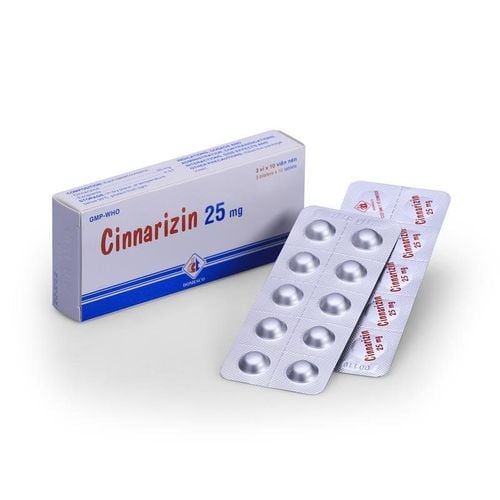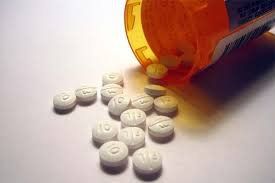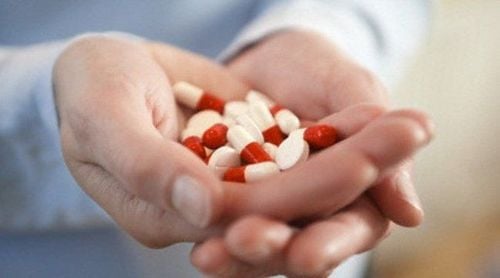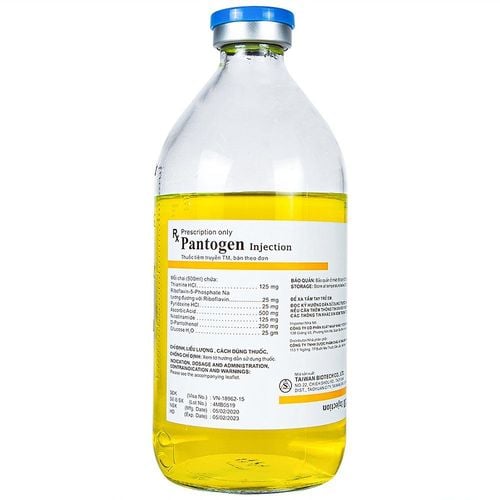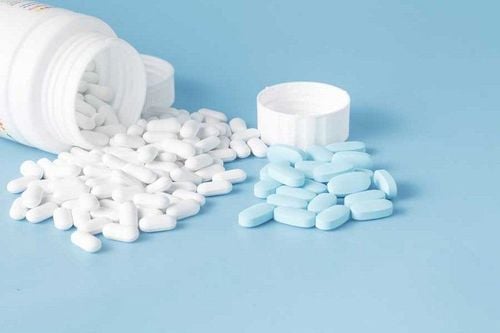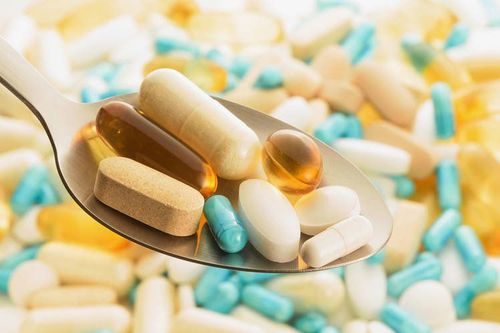This is an automatically translated article.
Wine is a popular alcoholic drink in today's modern life. Many people experience discomfort, headaches after drinking a lot of alcohol, this phenomenon is called residual binge drinking. Manifestations of excess alcohol intoxication are quite diverse and have diverse manifestations, differing from person to person. Headache after drinking alcohol is the most common manifestation in clinical practice.
1. Overview of the status of binge drinking
Residual drunkenness or drunkenness are unusual manifestations that appear in people who drink alcohol in large quantities. People who experience binge drinking complain of fatigue and irritability that persist into the next day. If too much alcohol is used, the sequelae of drunkenness can appear repeatedly and negatively affect health as well as work productivity and social relationships.
Tolerance when using alcohol varies from subject to subject. However, one thing in common is that the symptoms of drunkenness the next day will be proportional to the amount of alcohol consumed. That is, the more alcohol you drink, the worse the sequelae of drunkenness will appear. There are no specific recommendations for how much alcohol to drink to avoid getting drunk.
Symptoms of drunkenness do not last forever and will disappear automatically over time without the need for medication or other interventions. Ideally, alcohol should only be used at a reasonable level to protect health and prevent the sequelae of drunkenness.
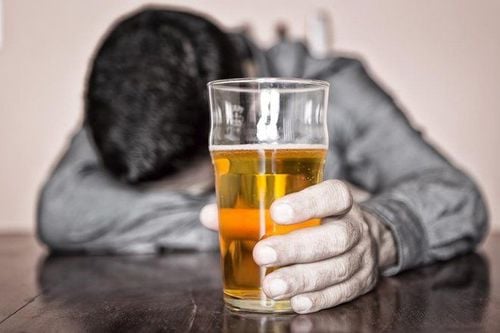
Lạm dụng rượu có thể gây suy nhược thần kinh
2. Why is there a sequelae of drunkenness?
Apparently, the sequelae of drunkenness appear after the body consumes a large amount of alcohol. It is not known exactly how much alcohol causes intoxication. A glass of wine can cause hangovers in this person while some people can tolerate a quart of alcohol. Some habits when using alcohol that increase the likelihood of experiencing binge drinking include:
Using alcohol on an empty stomach. The rate at which alcohol is absorbed by the body occurs faster on an empty stomach than on an empty stomach. Using alcohol in combination with other stimulants such as tobacco. Less sleep after drinking makes the symptoms of drunkenness appear more severe the next day. Choose dark colored wines. These wines often contain many chemicals for coloring and flavoring. These same substances also increase the likelihood of sequelae of binge drinking. Family history of alcoholics. These subjects usually have a more sensitive response and therefore should not consume a lot of alcohol.
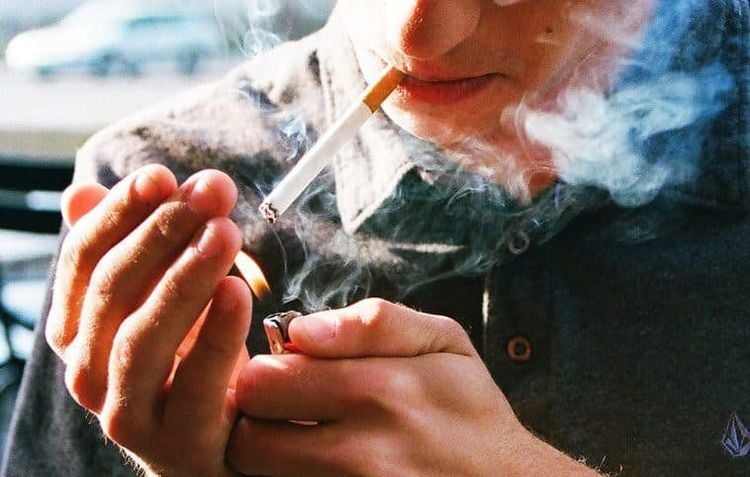
Hút thuốc lá kèm uống rượu làm tăng nguy cơ gây di chứng say rượu
Several mechanisms are often chosen to explain the occurrence of unusual manifestations when a person experiences intoxication such as:
Alcohol is an alcoholic and potentially addictive drink. When drinking alcohol, the human body responds to the amount of alcohol in the blood with an inflammatory response. It is this response of the immune system that produces a number of chemicals that make the body reduce concentration and memory, and lose interest in daily activities. After drinking alcohol, the body easily falls into a state of sadness, mood swings and depression. Alcohol can also increase the feeling of drowsiness, but when sleeping is not deep, it makes the body tired. Alcohol entering the stomach will irritate the gastric mucosa, increase the secretion of gastric juice and cause abdominal pain, nausea and vomiting. Drinking alcohol causes the body to excrete more urine, making it easy to fall into a state of dehydration. At that time, the body easily feels dizzy and thirsty. Alcohol affects sugar metabolism in the body by reducing blood sugar levels. When low blood sugar, the human body will experience fatigue, nervousness, personality disorders, fainting and possibly convulsions. Alcohol activates the dilation of blood vessels, increasing blood flow to the brain, causing frequent alcohol users to feel a headache after drinking.
3. Recognizing signs of sequelae of drunkenness
Recognizing that a person is in a state of intoxication is not difficult, but the manifestations of the sequelae of drunkenness are diverse and different from person to person. Symptoms commonly seen in a drunk person include:
Headache after drinking Dizziness Dizziness Decreased attention concentration Easily worried, emotional Mood swings, often becoming more irritable Fatigue, drowsiness Pain general body muscle fatigue Reddening of the skin, most commonly the face of the face, breath that smells of alcohol, more saliva, increased heart rate, abdominal pain, nausea, vomiting, digestive disorders, fear of noise, fear of light
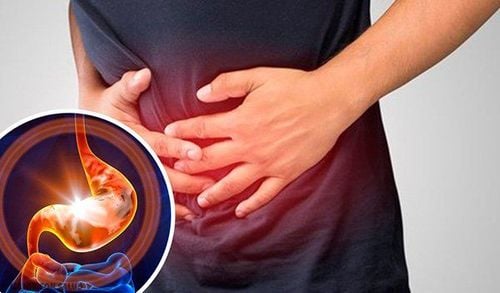
Rối loạn tiêu hóa là dấu hiệu nhận biết của di chứng say rượu
Usually, the symptoms of sequelae of drunkenness go away on their own without any intervention. However, people with sequelae of alcohol intoxication should go to the nearest medical facility if the following danger signs appear:
Shortness of breath or breathing disturbances Pale, purple skin, mucous membranes Heart rhythm disorder Lethargy Dreams, coma, call questions do not answer correctly Convulsions, seizures Vomiting repeatedly
4. What to do when experiencing sequelae of drunkenness?
It is not difficult to identify yourself or a loved one or friend who is experiencing the sequelae of drunkenness based on the unpleasant manifestations that appear after drinking a lot of alcohol. The sequelae of binge drinking do not require any aid for diagnosis and do not require any medical intervention in most cases. Usually, symptoms of intoxication go away on their own within 24 hours or a few days. People who experience the sequelae of drunkenness can take some of the following measures to feel more comfortable such as:
Drink a lot of water: alcohol causes the body to increase urine excretion, leading to dehydration. Drinking a lot of water is a simple measure but makes you feel more comfortable and less tired. Get enough sleep: drunk people often feel sleepy but the quality of sleep is not high. Rest and deep sleep are measures to help restore the body and reduce the unpleasant manifestations of the sequelae of drunkenness. Eat well: alcohol lowers blood sugar, so people who use alcohol need to eat enough to avoid complications of hypoglycemia. At the same time, the food lining the stomach helps protect the mucosa, avoid irritation and reduce the rate of alcohol absorption into the body.

Uống nhiều nước sẽ giúp bạn giải rượu và dễ chịu hơn
The sequelae left after being drunk are not small, and can even leave dangerous complications to health. So you should consider and use a moderate amount.
Please dial HOTLINE for more information or register for an appointment HERE. Download MyVinmec app to make appointments faster and to manage your bookings easily.




